Vitamin B9 : Vitamin B9 is a water-soluble vitamin that is essential for your body.…
Top 10 Indian Foods Rich In Vitamin B3
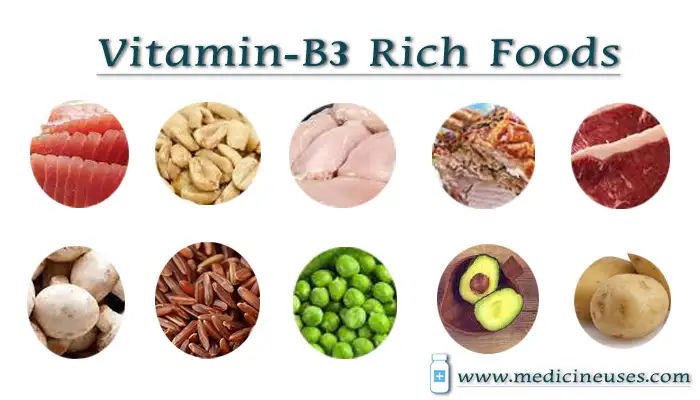
Vitamin B3 :
Vitamin B3 is a water-soluble vitamin that is necessary for the body to synthesize proteins, fatty acids, and cholesterol. It also helps in an important activity of converting food into energy. Vitamin B3 deficiency symptoms can include heartburn, nausea, diarrhea, vomiting, and neurologic problems. Vitamin b3 benefits include improved mood and increased energy levels, leading to better overall health. It helps to maintain our body with healthy skin, hair, and nails and is also important for healthy brain function.
- Vitamin B3 (Niacin) is a micronutrient that our body uses for proper metabolism, nervous system function and antioxidant protection
- It’s an essential nutrient — meaning that you must obtain it from food, as your body cannot produce it on its own
- Since it is water soluble, any surplus is excreted through your urine rather than stored in your body, hence it’s important to regularly consume niacin-rich foods
- Helps in processing fat in the body, lowering cholesterol levels, and regulating blood sugar levels
- The anti-inflammatory properties of vitamin B3 is useful for reducing pain and inflammation and providing relief in arthritic conditions
- Vitamin B3 is extremely important for the healthy functioning of the gastrointestinal system by improving digestion, proper absorption of the food juices into the body and excretion of the waste products from the intestines
- It also prevents constipation and reduces flatulence
- Slight deficiency of niacin can lead to irritability, poor concentration, anxiety, fatigue, restlessness, apathy, and depression
- The current daily value for this nutrient is 16 mg per day for men and 14 mg per day for women
Ten Important Indian Foods Which is Rich in Vitamin B3
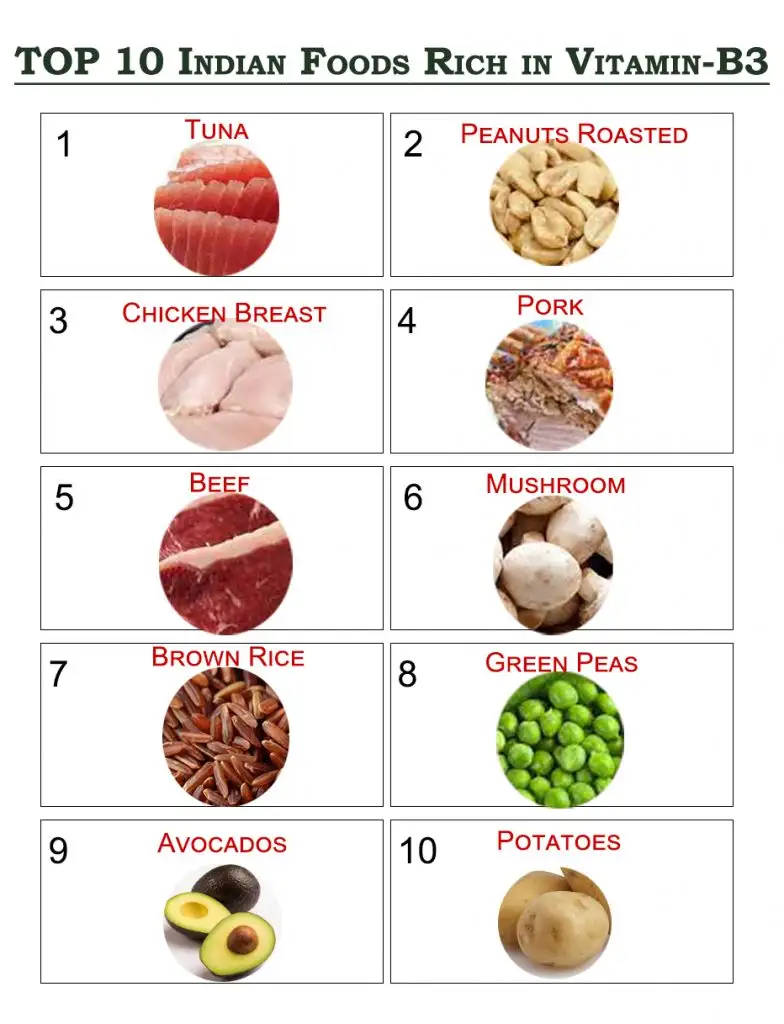
| 1 Tuna | 2 Peanuts Dry Roasted |
| 3 Chicken Breast | 4 Pork |
| 5 Beef | 6 Mushroom |
| 7 Brown Rice | 8 Green Peas |
| 9 Avocados | 10 Potatoes |
1. Tuna :
- Tuna is a low glycemic index food and excellent source of selenium, vitamin B3, vitamin B6, vitamin B12, vitamin D, phosphorus, potassium, magnesium and choline
- It is less in fat, high in protein and omega-3 fatty acids
- It helps in anti-aging and anti wrinkle effects, by increasing the elasticity and moisture of the skin giving a glow to it
- The B vitamins present supports heart health and helps to lower the cholesterol levels
- Selenium present has a strong antioxidant property helps boost immunity and prevents chronic diseases
- Tuna consumption supports bone health and protein improves the muscle health making it stronger
- Improves the metabolism and provides energy to all cells aids in the formation of red blood cells
- Mainly prevents and heals stroke maintaining brain health
- Per 100 grams of Tuna has 22.1 mg of Niacin
2. Peanuts Dry Roasted :
- Peanuts are also rich in protein, monounsaturated fats, biotin, copper, niacin, folate, manganese, vitamin E, vitamin B6, thiamine, phosphorus, and magnesium
- Peanuts are relatively high in calories, low in carbs and hence good for people with diabetes
- Additionally, daily peanut consumption does not lead to weight gain
- Peanuts contain various plant compounds, these include antioxidants, such as coumaric acid and resveratrol, as well as antinutrients like phytic acid
- Peanuts plays an essential role in the growth and maintenance of body tissues
- Peanuts may help prevent heart disease and also cut the risk of gallstones
- Every 100 grams of peanut serves 14.4mg of B3 vitamins
3. Chicken Breast :
- Chicken in general is a source of high-quality dietary protein
- Chicken breast has low calories and serves as a source of niacin
- Chicken liver is incredibly nutritious, packed with protein, iron, choline, vitamin A and other B vitamins
- Chicken contains nutrients linked with mood
- Chicken has tryptophan, an amino acid that is responsible for raising serotonin levels in your brain
Serotonin is the “feel-good” neurochemical linked with mood - Chicken provides vitamins and minerals involved in brain function
- Dark and white meat chicken contains vitamin B12 and choline, which together may promote brain development in children
- Help the nervous system function properly and aid cognitive performance in older adults
- Helps build muscle, strengthen the bones and promotes heart health
- Foods high in protein plays a role in managing weight and normal blood sugar levels
- 100 grams of Chicken serves 9.5 mg of Vitamin B3
4. Pork :
- Pork is also one of the best food sources of Vitamin B3 (Niacin), which is a key vitamin for your body’s metabolism
- Rich in protein and provides several important vitamins and minerals
- Pork is naturally low in sodium but rich source of potassium – two nutrients together can help regulate blood pressure
- It contains all the 9 essential amino acids that are crucial for the proper growth of the human body
Beta-alanine is a fine form of amino acid found in pork helps in the production of carnosine, which is a crucial element in muscle development - Selenium is one of the minerals found in pork needed for proper thyroid functioning
- It is a common meat eaten worldwide
- Pork is eaten both freshly cooked and preserved
- Curing extends the shelf life of the pork products
- Pork per 100grams serves 8 mg of Vitamin B3
5. Beef :
- Meat is an excellent source of protein and various vitamins and minerals. These include vitamin B12, zinc, selenium, iron, niacin, and vitamin B6 which has been linked to health benefits
- Animal meat like beef contains a number of bioactive substances, such as creatine, taurine, CLA, and cholesterol
- Beef red meat which contains higher amounts of iron than chicken or fish
- Lean beef is more preferable since it contain more niacin per ounce than fattier products
- Protein present helps in building muscle strength
- Also contains all nine essential amino acids needed for the growth and maintenance of your body
- Helps in blood formation and enhances your brain and nervous system
- Grass-fed beef offers more heart-healthy omega-3 fatty acids and antioxidants than conventional grain-fed beef, making it a highly nutritious option
- 100 grams of beef has around 5.6mg of Niacin present in it
6. Mushroom :
- Mushrooms can naturally produce vitamins when exposed to sunlight
- They contain no fat and are a valuable source of fiber
- They are also packed with selenium which you don’t find in most fruits and vegetables
- For more benefits you can sun dry them before consumption
- They can be cooked, baked or pan fried to get a tasty and healthy delight
- 100 grams of mushroom gives us 22 calories and has 6.3 mg of Vitamin B3
7. Brown Rice :
- Brown rice the nutrient-packed bran and germ an excellent source of plant-based source of niacin
- The whole grain is a good source of folate, riboflavin (B2), potassium and calcium, thiamine, vitamin B6, magnesium, phosphorus and selenium
- Additionally, brown rice is exceptionally high in manganese, which helps in bone development, wound healing, muscle contraction metabolism, nerve function and blood sugar regulation
- Brown rice contains phenols and flavonoids, a class of antioxidants that help protect the body from oxidative stress
- Fiber in it helps keep you fuller over a longer period of time, so may help reduce belly fat and to lose weight
- Brown rice has a lower glycemic index and has less of an impact on blood sugar
- Brown rice is a highly nutritious, gluten-free grain
- Helps reduce inflammation and improve heart health in overweight and obese women
- 100 grams of brown rice holds 2.6mg of Vitamin B3
8. Green Peas :
- Green Peas are also high in antioxidants and other compounds that may reduce your risk of cancer, lower cholesterol levels and promote the growth of healthy gut bacteria
- Rich in fiber, the high fibre content present in pods helps in maintaining good digestive health
- Peas are a good source of iron which helps combat fatigue and gives you strength
- Peas has antioxidant phytoalexins which inhibit H.Pylori, the bacterium that causes stomach and duodenal ulcers and stomach cancer
- Peas are packed with carotenoid pigment lutein , known to reduce the risk of cataracts and macular degeneration or loss of vision
- The insoluble fibre content present in peas helps reduce the risk of heart disease and stroke
- It also help in ensuring stable blood sugar regulation in the body
- Peas are low in fat and also immensely low on calories helps in weight loss
Peas can help increase the sperm count and motility - Good for skin health and boost eye sight
- Plays a role in building immunity
- Per 100 gm holds 2 mg of Vitamin B3
9. Avocados :
- Avocados is a versatile fruit, rich in fiber and healthy fats
- It contain very little sugar and plenty of nutrients, including 20 different vitamins and minerals
- In fact, one avocado contains more than twice the potassium of a banana
- Avocados are also excellent sources of monounsaturated fats, which may help reduce your risk of heart disease
- Their fat content may help you absorb nutrients from plant foods
- Helps lower cholesterol and triglyceride levels
- Avocados comes with powerful antioxidants that protect your eyes
- Avocado extract helps relieve symptoms of arthritis
- Help prevent cancer
- Help in reducing weight
- The creamy, rich, fatty texture helps blend well with other ingredients, making it a healthful addition to many meals and snacks
- Per 100 gms of avocado has 1.7mg of Vitamin B3
10. Potatoes :
- Potatoes has low-fat, low-cholesterol can greatly reduce risks of heart disease
- Good source of carbohydrates and protein
- Nutrient-dense too
- Potato has more potassium than a banana
- Increase the choline in your body and reduce inflammation
- High in fiber, which helps with digestion
- Aids in weight loss and weight management
- One large baked potato provides 4.2 mg of niacin
- Sweet potatoes also serve as a rich source of niacin
- Per 100 gms of potatoes has 1mg of Vitamin B3
Vitamin B3 Deficiency Symptoms and Signs
Vitamin B3 deficiency is a medical condition where the body doesn’t get enough vitamin B3 from their daily food sources. This deficiency can lead to a number of symptoms and signs. The most common symptom of vitamin B3 deficiency is a sore tongue. Other symptoms include dizziness, fatigue, nausea, and headaches. Vitamin B3 deficiency also leads to problems with the nervous system and cardiovascular system.
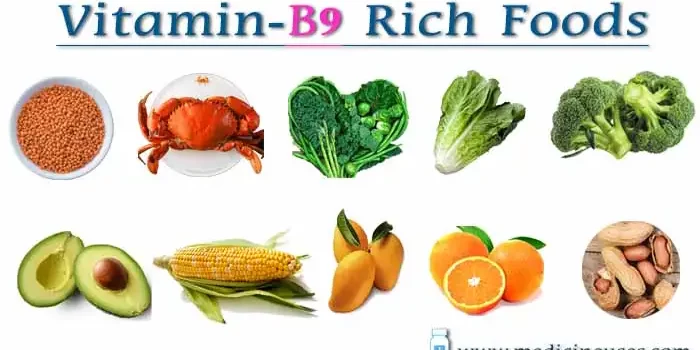
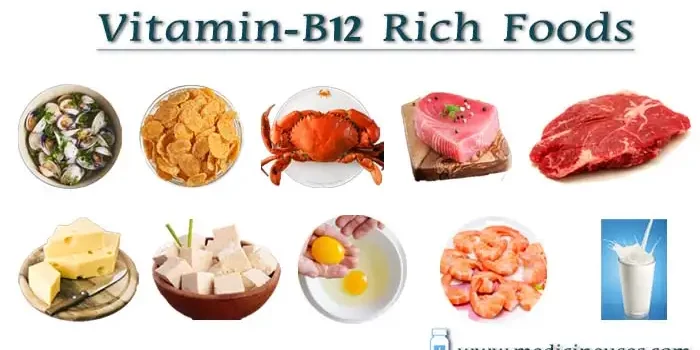
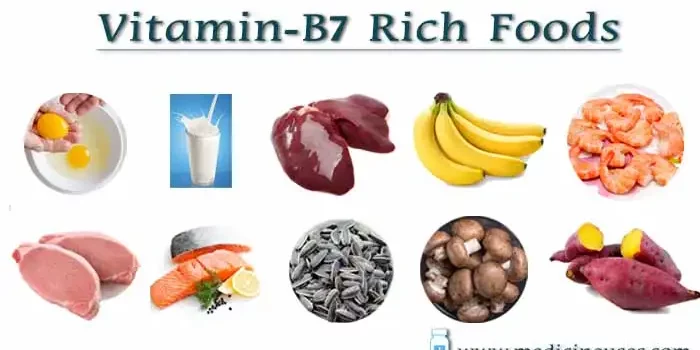
This Post Has 0 Comments